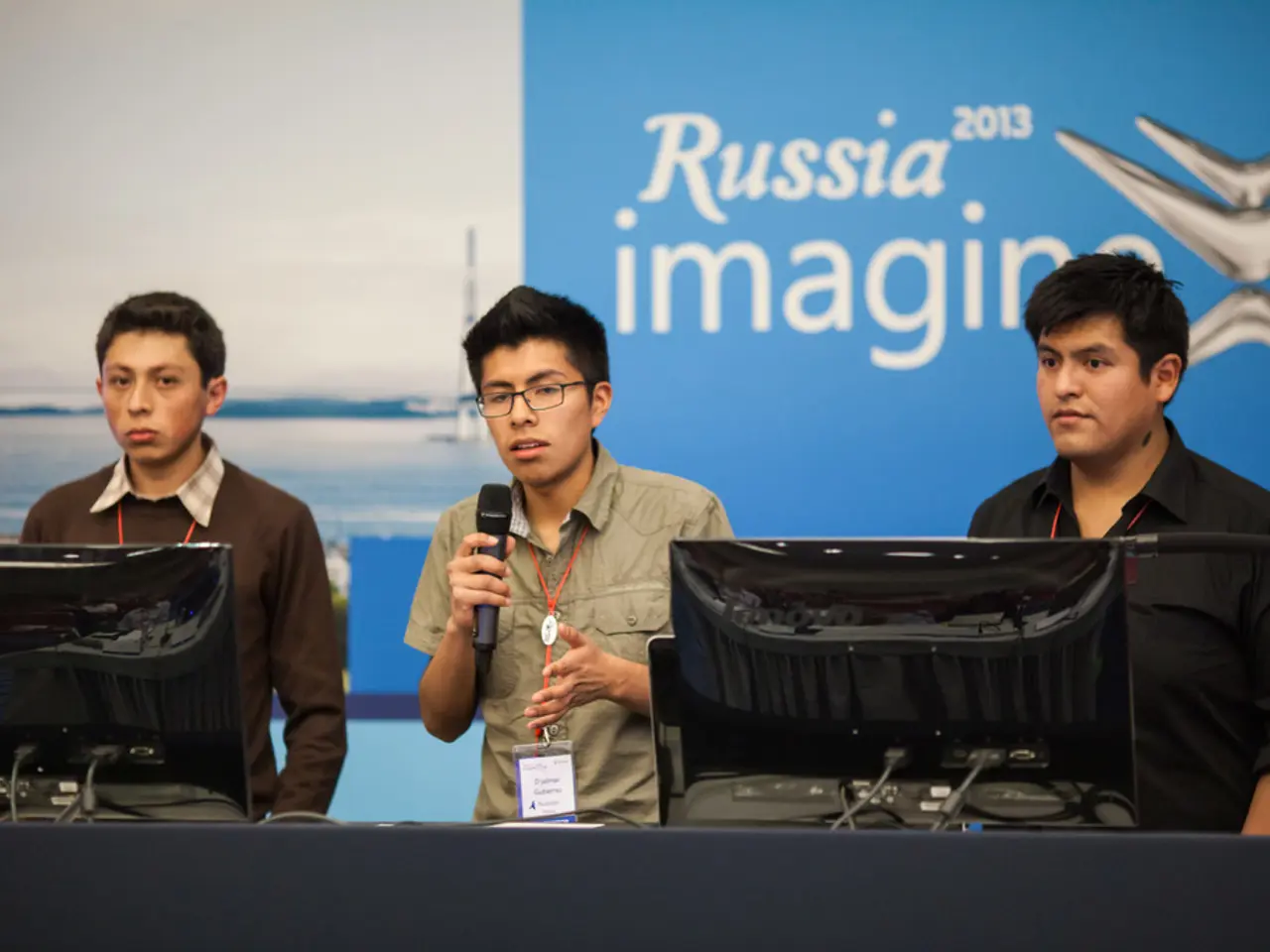Inquiry from China Regarding Security Standards in Nvidia's AI Processors
In a recent development, Chinese regulators have summoned Nvidia to provide explanations and evidence regarding suspected security risks and potential "backdoor" functions in their H20 chips. The Cyberspace Administration of China (CAC) has raised concerns about hidden tracking and remote control capabilities, sparking an investigation into the tech giant's operations in China [1][2].
The H20 GPU, a cut-down version of Nvidia's H100, was initially developed to comply with U.S. export controls imposed in 2023. These controls limit the performance of AI accelerators sold to China. Unlike restricted chips such as the H100, H200, B100, and B200, the H20 module currently has no explicit export restrictions or mandated tracking features [1].
However, the security concerns stem from recent U.S. legislative proposals requiring advanced AI chips exported overseas to incorporate tracking and location-verification technologies. These measures aim to prevent smuggling of export-controlled chip technology, but they prompt fears of embedded remote monitoring or control functions that could jeopardise user data privacy. Chinese regulators suspect such features might exist on the H20, despite official denials [1][2].
The CAC's inquiry into Nvidia was triggered by reports of "serious security issues" related to Nvidia chips, coupled with statements by some U.S. AI experts claiming that remote control capabilities for Nvidia's chips have matured. However, the CAC has not publicly disclosed the precise sources of its information [2].
The investigation comes at a time when Nvidia had recently secured permission to sell the H20 into China without a U.S. export license. The potential disruption of its Chinese operations now raises questions about whether any hardware or firmware backdoors exist that could leak personal or sensitive data to foreign entities or enable remote tracking [1][2].
This situation further intensifies the technology conflict between the U.S. and China, with Peking pushing back against Washington's restrictions on chip sales. Peking aims for greater independence through its own chip development [3]. The outcome of the investigation could have significant implications for Nvidia's business in China and the broader geopolitical race between the two superpowers.
[1] Wang, J. (2025, May 1). Nvidia Faces Inquiry Over Security Concerns in China. The Wall Street Journal. [2] Chen, Y. (2025, May 3). China Probes Nvidia over Suspected Security Risks in H20 Chips. Reuters. [3] Li, Q. (2025, April 15). China's Push for Chip Independence. The New York Times.
- The investigation by Chinese regulators into potential "backdoor" functions in Nvidia's H20 chips, due to concerns about hidden tracking and remote control capabilities, reflects the intersection of technology, politics, and general news.
- The suspected security risks in Nvidia's H20 chips, which were developed to comply with U.S. export controls, raise questions about the role of artificial-intelligence and finance in shaping the global technology industry and the protection of user data privacy.
- The ongoing investigation into Nvidia's H20 chips by the Cyberspace Administration of China (CAC) could have significant implications for the company's operations in China and underscores the critical role that industry and politics play in the broader geopolitical race between the U.S. and China, particularly in the field of technology.




